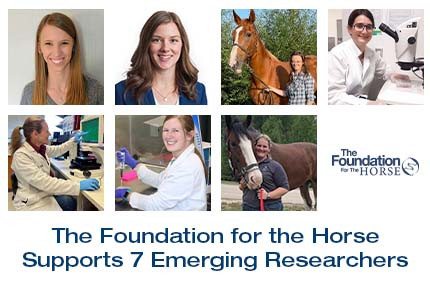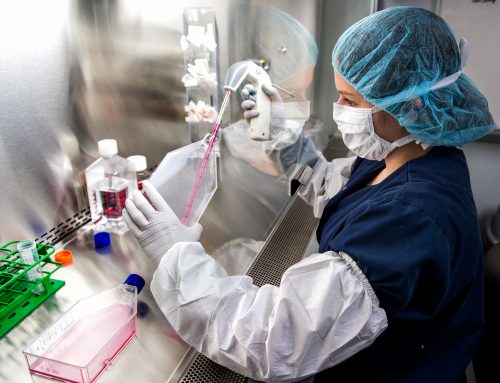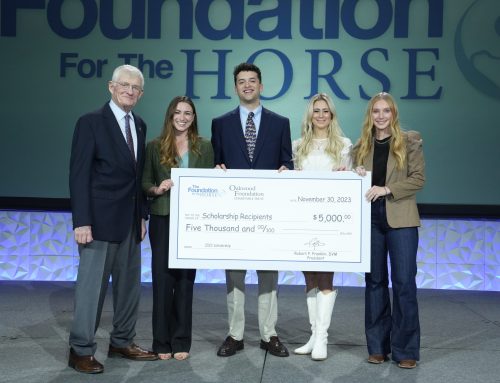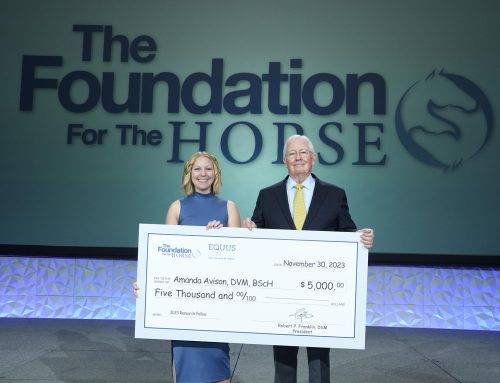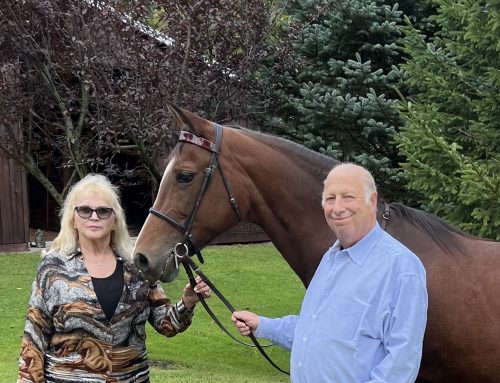The Foundation for the Horse today announced the award of $131,717 for seven exceptional equine research projects being investigated by AAEP-member graduate students, residents, or postdoctoral fellows. Since inception of the program in 2019, The Foundation has provided $326,398 in support of impactful equine research by up-and-coming investigators.
“We thank all donors who have supported The Foundation for the Horse and our growing equine research initiatives, especially the Thoroughbred Education and Research Foundation for their funding and collaborative support of Dr. Kooy’s project,” said Dr. Anthony Blikslager, Foundation Advisory Council Research Subcommittee chairman.
The supported research projects with researcher names and brief summaries follow:
Elucidating host-pathogen interactions during equine placentitis
Dr. Machteld van Heule, University of California, Davis
Generating data that enables identification of important placental genes and pathways involved in survival and pathogenesis of the pathogen and the host immune response will allow for improved treatment of placentitis and identification of new biomarkers that can facilitate an early diagnosis.
Validation of chorionic girdle organoid culture as an invitro source of equine chorionic gonadotropin
Dr. Riley Thompson, Colorado State University
Providing the first long-term, physiologically representative in vitro model of the equine chorionic gonadotropin will be pivotal for studying regulation of trophoblast differentiation and early pregnancy maintenance in the mare while also yielding the potential for large-scale in vitro production of eCG.
Investigation of genetic component of pergolide efficacy & adverse effects in horses undergoing treatment for pituitary pars intermedia dysfunction (PPID)
Dr. Lauren Hughes, University of Minnesota
Establishing which putative alleles involved in the selected candidate genes are associated with adverse effects or varying efficacy of pergolide therapy may increase veterinarians’ ability to appropriately treat this condition while expanding current knowledge on pathophysiology of PPID.
Evaluation of persistence of chondrocytes or mesenchymal stromal cells after intra-articular injection
Dr. Bethany Liebig, Colorado State University
Determining whether culture-expanded chondrocytes will remain viable in the joint significantly longer than MSCs after intra-articular injection as measured through IVIS imaging, which could improve upon the use of MSCs to treat osteoarthritis.
Equine placenta in lab: development of equine placental organoid
Dr. Margo Verstraete, University of California, Davis
Establishing a protocol to generate equine trophoblast organoids from fresh post-partum placental samples for use as in vitro models to study placental development and its associated pathologies.
An mRNA Vaccine to Immunize Foals Against Rhodococcus equi
Dr. Rebecca Legere, Texas A&M University
Identifying a construct of in vitro-transcribed mRNA encoding virulence-associated protein A that yields strong protein expression and secretion in vitro, and demonstrating that nebulized IVT mRNA encoding VapA produces significantly greater antibody activity and cell-mediated immune responses than does intramuscular immunization with adjuvanted, purified VapA protein, will provide compelling evidence to evaluate the nebulized IVT mRNA VapA vaccine to protect foals against infection with R. equi.
Direct and indirect effects of platelet rich plasma on neutrophil stimulation
Dr. Sarah Kooy, Auburn University
Observing differences in neutrophil proliferation and function with direct and indirect treatment of PRP will likely further strengthen the need for practitioners to use pure (leukocyte reduced) PRP for enhanced repair of musculoskeletal injuries, which is important to minimize reinjury and protect continued athletic performance.
Dr. Kooy’s project is supported by a gift from the Thoroughbred Education and Research Foundation, whose mission is to make racing safer through research and education. This is the second consecutive year that TERF has partnered with The Foundation for the Horse on important research with potential to impact the health and safety of Thoroughbred athletes.
Equine research is one of three pillars of impact—along with education and horses at risk—supported by The Foundation. The 2022 application window for this research grant program will open early next year. To learn more, visit https://www.foundationforthehorse.org/graduate-student-fellow-resident-research-grants/.
About The Foundation for the Horse
Established in 1994, The Foundation for the Horse is a 501(c)(3) charitable organization dedicated to improving the welfare of the horse through Education, Research, and Horses at Risk. Governed and stewarded by world-renowned equine veterinarians and equine stakeholders, The Foundation awards over $600,000 annually in scholarships and grants to impact equine health and well-being throughout the U.S. and developing countries. To learn more, visit www.foundationforthehorse.org.
# # #

